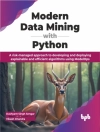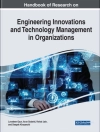The present book includes a set of selected extended papers from the 4th International Conference on Simulation and Modeling Methodologies, Technologies and Applications (SIMULTECH 2014), held in Vienna, Austria, from 28 to 30 August 2014. The conference brought together researchers, engineers and practitioners interested in methodologies and applications of modeling and simulation. New and innovative solutions are reported in this book. SIMULTECH 2014 received 167 submissions, from 45 countries, in all continents. After a double blind paper review performed by the Program Committee, 23% were accepted as full papers and thus selected for oral presentation. Additional papers were accepted as short papers and posters. A further selection was made after the Conference, based also on the assessment of presentation quality and audience interest, so that this book includes the extended and revised versions of the very best papers of SIMULTECH 2014. Commitment to high quality standards isa major concern of SIMULTECH that will be maintained in the next editions, considering not only the stringent paper acceptance ratios but also the quality of the program committee, keynote lectures, participation level and logistics.
Tabela de Conteúdo
Front Velocity Modeling Approach to Column Chromatographic Characterization and Evaluation of Ketamine Enantiomers Separation with Simulated Moving Bed.- Modeling Hybrid Systems with Petri Nets.- Automatic Tuning of Computational Models.- Enhanced Interior Gateway Routing Protocol with IPv4 and IPv6 Support for OMNe T++.- Simulating LTE/LTE-advanced Networks with Simu LTE.- Sensitivity Estimation using Likelihood Ratio Method with Fixed-sample-Path Principle.- A System Dynamics Simulator for Decision Support in Risk-based IT Outsourcing Capabilities Management.- Analysis of Fractional-order Point Reactor Kinetics Model with Adiabatic Temperature Feedback for Nuclear Reactor with Subdiffusive Neutron Transport.- Analysis of Model Predictive Control for Fractional-order System.- CFD Modeling of a Mixed Mode Boosted GDI Engine and Performance Optimization for the Avoidance of Knocking.- Real-time Radar, Target and Environment Simulator.- Computationally-efficient EM-simulation-Driven Multi-objective Design of Compact Microwave Structures.- Simulation-based Optimization in Design-under-uncertainty Problems through Iterative
Development of Metamodels in Augmented Design/random Variable Space.- Social Aggravation Estimation to Seismic Hazard Using Classical Fuzzy Methods.












